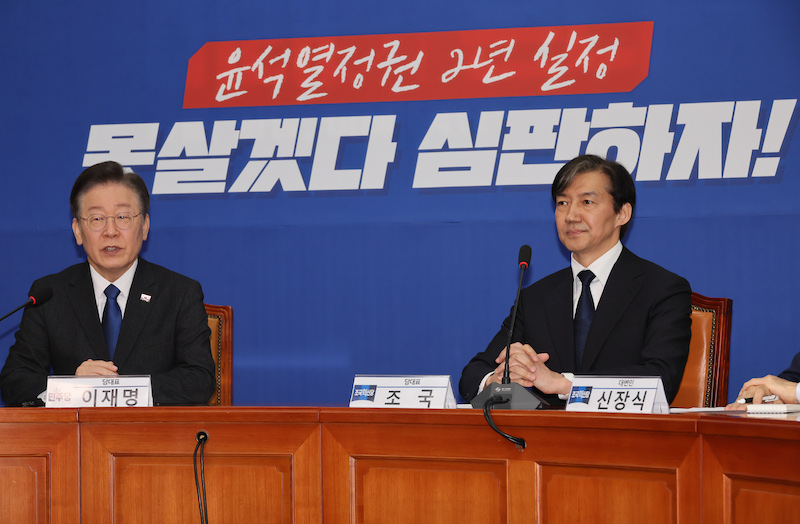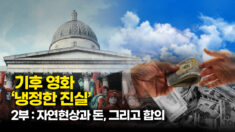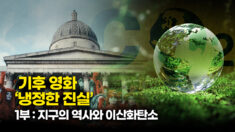천진한 5살 아이가 달리기 시합에 나선다. 아이는 이기기 위해 동갑내기 여자아이를 밀친다. 글쓴이는 달리기 경주에 참가한 아이들의 장난을 보며 자유와 방종, 교육의 의미를 되새긴다. 이스라엘 정치철학자 요람 하조니(Yoram Hazony)가 쓴 ‘국가주의의 미덕’에서는 가족과 지역사회, 국가에 대해 논한다. 하조니 박사는 신의에 바탕을 둔 국가주의는 오래전부터 검증된 정치구조로 의사결정 권한을 가족, 지역사회, 국가에 줌으로써 협력하고 공동 가치를 지키며 법을 준수하는 것이라고 말했다. 자신을 통제해야 개개인이 진정한 자유를 누릴 수 있다고.
달리기 경주에서 아이들이 규칙 따르는 법을 익혀야 하듯, 악기 연주에서부터 직장과 가정 생활에 이르기까지 우리는 규칙을 지키며 자신을 절제해야 한다. 좋은 사회는 안정된 가정을 기반으로 노인과 어린이들이 보호받고, 군인들이 안전하게 나라를 지키는 것이라 한다. 하지만 이는 국가의 절대적 영향 아래에 있는 것으로, 각자가 전통과 희생, 의무에 가치를 둔다면 지역 사회는 자연히 좋은 사회로 발전할 것이다. 반면, 개인의 향락, 이혼과 혼외 출산 등이 쉬운 분위기가 형성된다면 자유로우며 좋은 사회가 되기 힘들 것이라고 글쓴이는 말한다. -편집부
Commentary
Years ago, I saw Michael, a boy then only 5 years old, racing a girl from his school in a park. She was the same age but, at this stage, was bigger and faster, and was pulling ahead. This was an informal race, with no rules, and the boy felt free to do as he wanted.
So he pushed the girl over and raced ahead.
For an exuberant boy such as Michael to grow into a good man, he must be constrained by others from such behavior, and internalize and develop the virtue of self-restraint or self-mastery, traditionally called temperance. He must learn that his own freedom isn’t just balanced by constraint as a countervailing force, but it depends on constraint. Even an informal foot race is not really a race if the runners don’t allow each other to run. They must recognize some basic rules and constraints.
But some conservatives of libertarian persuasion, political philosopher Yoram Hazony argues, see liberty as freedom from constraint. Author of “The Virtue of Nationalism” and organizer of the influential Washington conference in July on National Conservatism, Hazony argues that failure to understand the importance of constraint—internal and external—for the life of an individual, family, and nation is a failure to appreciate the conditions for freedom itself.
He argues that constraint is necessary so that each of us can be free. The freedom to drive a car depends on others not stealing or vandalizing the car and on our all following, more or less, the same rules of the road. In the same way, the freedom to say what one wants depends on others tolerating it and not driving one from one’s job because they disagree. “But for others to tolerate what I have to say requires constraint, not freedom,” he writes in an essay for the American Mind.
In order to grow up free, the boy must learn to follow the rules of the game—any game he wants to play, whether chess or football, playing the violin, or indeed a job or career, or marriage or family life, or service to the nation. Constraint, as Hazony concludes, “is the key to everything productive or good that we do in life.”
“Constraint does much more, however, than establishing freedom. If I wish to be able to play the guitar or piano, or to prepare cooked meals, or to defeat an armed opponent bare-handed using aikido, I gain the necessary skills not by insisting on my freedom, but through constraint: Through studying and practicing at length every day, even when I find it disagreeable and feel overwhelmed by the desire to be doing something else.
“In the same way, my marriage, remaining faithful to my wife and bringing children into the world and raising them, involves a massive, daily curtailment of my freedom. To make it work, I am constrained to take a job that I may not want so I can make a living. I am constrained to refrain from relations with other women, much as I may desire them. I am constrained to care each day for young people who are often angry, troubled, or sick. Yet all of these constraints are the price of building up a family that can endure and flourish, contributing to my nation and to the things that I believe in, long after I am gone. And the same can be said of serving in the military and paying taxes, observing holy days and sabbaths, and everything else that is of value,” Hazony writes.
Such a list already suggests limits to the capacity of rulers, states, empires, and their police and bureaucrats to impose such constraints. When the self-restraint of the people, the norms and mores reinforced in families, churches, and synagogues, and communities are strong, the state can afford to be mild. When such self-discipline and the honoring of those who exercise it, even at high personal cost, are strong, the need for coercion, for bureaucratic and professional substitutes for informal care and control is weaker.
This rule applies not only to areas where government agencies take on the functions once performed by families and faith communities, but also to the functioning of markets. A friend of mine, a priest who had served in Nigeria, told me how he had attended a woman there at her execution. The condemned woman was a merchant who had dealt with two competitors by hiring hit-men to kill them: a more deadly—to all concerned—application of young Michael’s approach to dealing with competition. Where the rules and constraints of a free market are well established and accepted, such measures—not unknown in U.S. history in the form of urban gangsterism—become less the rule than the exception.
A good society depends on virtuous people—for example, those who work and sacrifice to sustain marriages and stable family structures, or serving the nation in the military, teaching the young, or personally caring for the infirm and aged. But a nation may make it easier or harder for its members to practice the virtues needed to lead good lives. A nation may, in its laws, customs, and moral environment, support stable marriage and family structure that enable children to thrive. Or on the contrary, it may promote and facilitate, in its laws and its TV shows, easy divorce and out-of-wedlock birth with all their attendant costs for children. It may recognize and honor tradition, duty, and sacrifice, or ridicule them as constraints on individual autonomy.
We live in a time of reckless abandonment of those structures and constraints that enable us to flourish, both as individuals and as a nation. It’s not just a matter of carelessness and neglect. The demolition of the nation’s traditions, vigorously and vindictively promoted by liberal and libertarian elites, is “at bottom, a struggle to prevent government, schools, and private institutions from giving honor to norms inherited from the past,” Hazony argues.
Bishop Robert Barron often reminds us that “your life is not about you.” But the dominant culture of our elites promotes the opposite message. It’s all about you, your freedom as an unencumbered autonomous individual, unconstrained by duty to family, faith, or nation, all of which must, in their view, be torn down in the interest of freedom, understood as freedom from constraints.
폴 애덤스는 하와이 대학의 사회학과 명예 교수로 케이스 웨스턴 리저브 대학의 교수 겸 부학장을 역임했다. 그는 ‘사회적 정의는 당신이 생각하는 것이 아니다’의 공동저자로 사회복지정책과 전문성과 덕목윤리에 대해 폭넓게 저술했다.
*이 기사는 저자의 견해를 나타내며 에포크타임스의 편집 방향성과 일치하지 않을 수도 있습니다.


![[칼럼] 부산 ‘소녀상’에 비닐봉지 씌운 남성, 처벌할 수 있을까](https://kr.theepochtimes.com/assets/uploads/2024/04/MYH20240413005600641_P4.jpg)



![트럼프를 ‘악당’으로 만들다…악의적 프레임의 수혜자는 누구? [ATL]](https://kr.theepochtimes.com/assets/uploads/2024/04/rrrr-235x132.jpg)